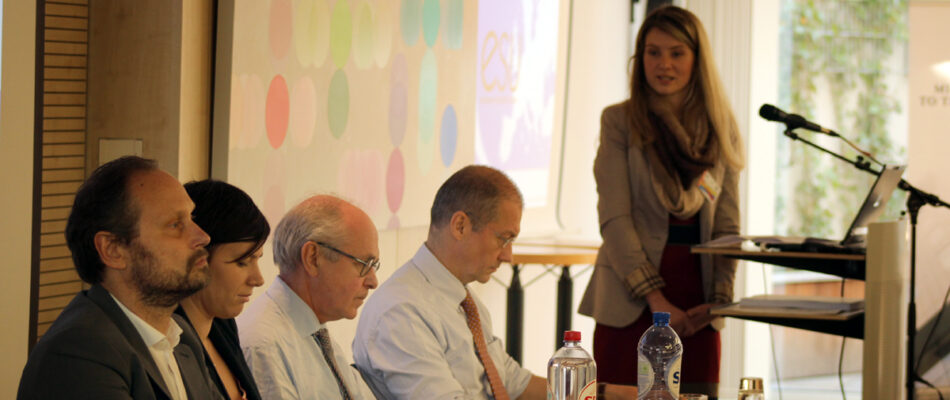
ESU presents outcomes of an employability research
BRUSSELS – Today, the European Students’ Union (ESU) presented the main outcomes of its research project called Student Advancement of Graduate Employability (SAGE). Several policy recommendations for improving the employability of graduates have been developed as part of this project.
One of the core elements of this project was a survey sent to 47 national unions of students in Europe. It revealed a very worrying trend, where 78 per cent of the participants believed that employers did not recognise the value of a Bachelor’s degree.
This research identified furthermore many problems in the recognition of non-formal and formal education. These shortcomings need to be rectified to ensure a fair recognition of all prior learning processes. Study choices must also reflect the real interest of each students and the diversity of the European Higher Education Area.
The results of the survey also highlighted the need to strengthen student-centred learning and develop learning outcomes further. Students must be considered as full partners at all levels in decision-making during the design of the curricula and learning outcomes. Learning paths must also be made flexible.
Lastly, a peer learning assessment needs to be implemented at the national and institutional level in order to enhance international cooperation in structural education reforms.
Employability is a concept of learning
“Employability is a process and a concept of learning, rather than a mere mathematical relationship between completion rates and employment statistics. As such, employability coincides with those goals of higher education that concern personal development, critical thinking, active citizenship and enhancement of democracy,” says Nevena Vuksanovic, the main coordinator of the SAGE project.
The survey findings suggested that students consider social and soft skills to play a big role in the learning process. Higher education institutions and the labour market believe that hard skills and work experience are more important. It is recommended to explore further whether students’ expectations towards higher education are met, because it can have a positive impact on completion rates.
Students must also be made more aware of such mechanisms, but 59 per cent of the survey’s respondents did not know if that kind of initiatives were in place in their countries. Only 7 per cent of the respondents said they participated fully in the development of their curricula.
Three publications on the way
These findings and the rest of the SAGE outcomes will be made available as a set of three publications to be published at the end of March.
The SAGE project is based on a three year long research, co-funded by the Lifelong Learning Programme of the European Union. ESU has been running the project in consortium with six other partner organisations: Innovation in Learning Institute (ILI), National Authority for Qualification, Romania (ANC), The National Conference of Students in Hungary (HÖOK), Spanish Coordinator of Students’ Representatives of Public Universities (CREUP), The National Union of Students in Denmark (DSF) and Union of Students in Finnish Universities of Applied Sciences (SAMOK).
— END —
For more information, please contact:
Rok Primozic, ESU’s Chairperson: +32/479.126.390 // rok@esu-online.org or Robert Hlynur Baldursson, ESU Communications Manager: +32/473.669.894 // robert@esu-online.org

The European Students’ Union, headquartered in Brussels, is the umbrella organisation of 47 national unions of students from 39 European countries. ESU represents and promotes the educational, social, economical and cultural interests of students at the European level. Through its member unions, ESU represents over 11 million students in Europe. To find out more about ESU, follow us on Twitter @ESUtwt, check out or Facebook page or visit www.esu-online.org. ESU celebrates its 30th anniversary in 2012.
